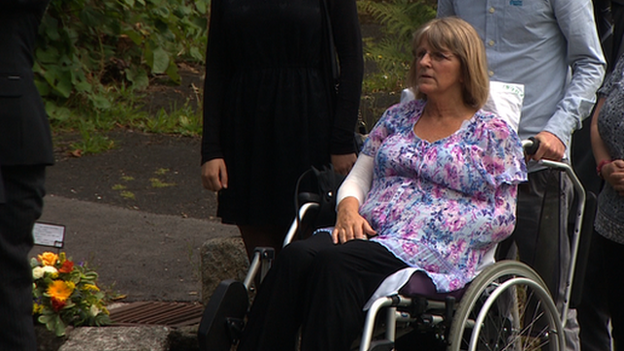Tunisia attack survivor: 'I've had the same nightmare 50 times'
- Published
Meet Allen Pembroke, the British holidaymaker who went back to the beach
Allen Pembroke has had the same nightmare 50 times. So far.
It is late morning on 26 June 2015. He is on the beach in the Tunisian resort of Port El Kantaoui near Sousse.
The Islamist gunman Seifeddine Rezgui is in the midst of his shooting rampage targeting British and other European holidaymakers at the Imperial hotel.
Many are already dead.
Mr Pembroke is trying to comfort a badly-injured British woman, when suddenly he realises Rezgui has returned to the beach and is standing behind them, about to open fire.
Somehow he manages to grab the high-powered assault rifle and turn it so it is pointing into the air.
It is then that Mr Pembroke wakes up in a sweat after lashing out. Sometimes he throws punches in his sleep.
Almost two years after the attack, which he and his wife witnessed close-up, they are still struggling to overcome the trauma, despite destroying all photographs, documents and other memorabilia from the trip.
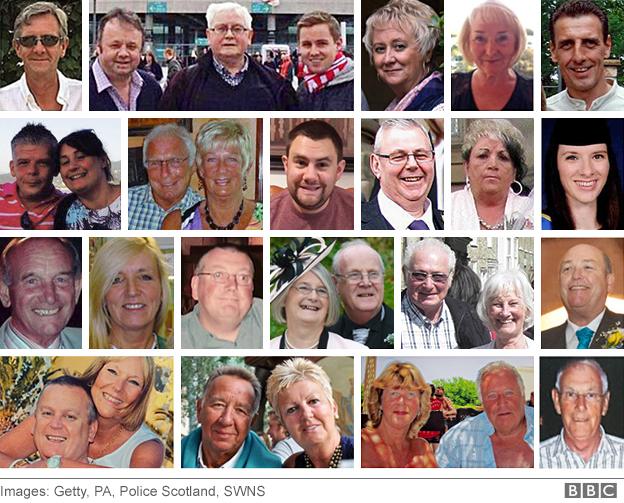
Thirty of the 38 people killed by a gunman on a Tunisian beach were British
"It's had a massive impact," says Mr Pembroke, 62, who works as a service manager at a car company in London.
"It's never going to go, and unfortunately since that day there've been several other terrorist incidents.
"With each incident, it's recall, we re-live the day.
"Even the start of the inquest... it just re-opens the wound."
'I wanted to help'
While many caught up in the attack ran for their lives when the shooting began, Mr Pembroke did something very different.
After hearing the first shots on the beach, he and his wife ran to their room a few metres away in a hotel next to the Imperial.
"While I am dragging her to the room, I could hear rapid gunfire, screaming, and bullets flying overhead," he said.
"I took her to the room and said, 'Stay there, please don't open the door, stay away from the window and lie on the floor.'"
Mr Pembroke then ran straight back to the beach towards the sound of the gunfire.
"I just wanted to help… I couldn't just secure myself in the room. I would have felt cowardly because I'd seen people go down, there was screaming.
"I thought, I've got some basic first aid skills, so let me see what I can do."
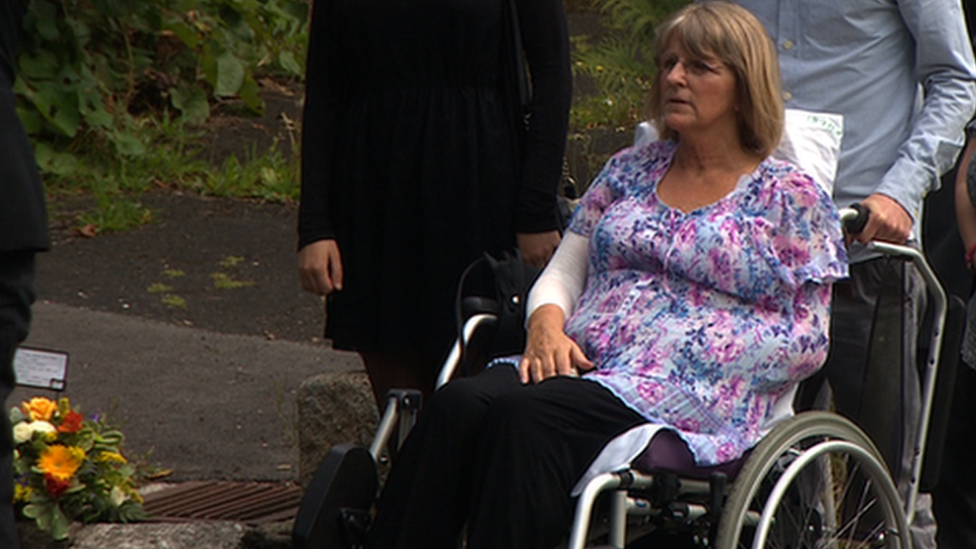
Cheryl Mellor lost a hand in the attack
Among the sun loungers close to the water's edge, he found people lying in pools of blood with injuries so horrific he did not want the details to be repeated.
He also found Cheryl Mellor, still alive after being shot in the leg and arm, drifting in and out of consciousness.
"I asked her if she was English and she replied that she was. So I said, 'My name is Allen and I will do what I can to help.'"
Her hand had been blown off by the impact of a high velocity round from Rezgui's Kalashnikov rifle.
Mr Pembroke grabbed a scarf and tied it around her arm as a makeshift tourniquet and then used a towel to stem the bleeding from her leg.
But the most difficult task was yet to come.
Mrs Mellor wanted to know what had happened to her husband, Stephen, who was lying nearby with severe wounds to his chest.
Mr Pembroke checked his pulse but there was nothing.
"Do you really want to know?" Mr Pembroke asked.
"Yes," she replied. She passed out when he told her that her husband was dead.
Later he offered to carry her to safety but she insisted on staying next to her husband, saying she would play dead if the gunman returned to the beach.
He did, but she survived.
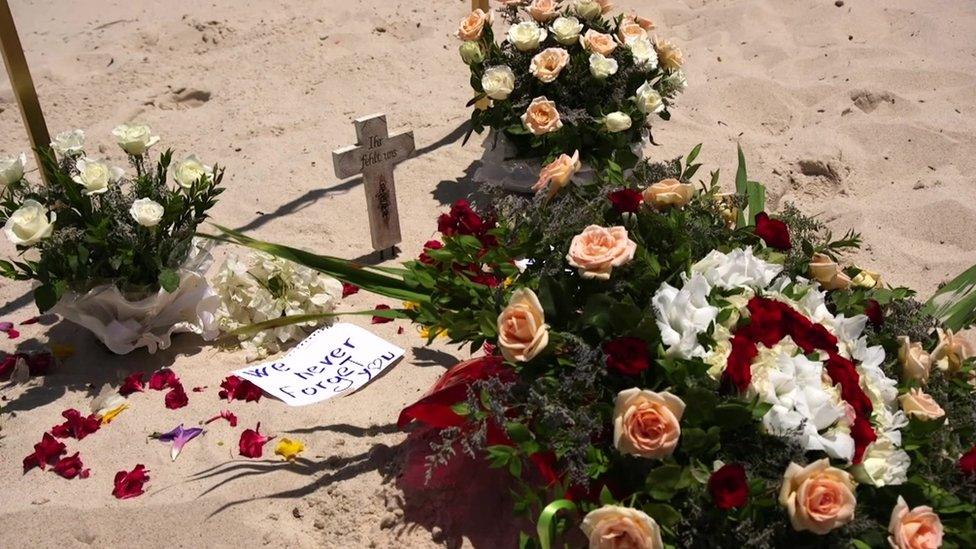
Mr Pembroke spent 20 minutes on the beach comforting Mrs Mellor and checking to see if any other holidaymakers who had been shot were still alive.
He says he was alone and no one else was helping.
"I saw no military or medical staff and it's only in recent reports that I found out that the police waited, they fainted, they hid.
"That's unforgivable, they need to be accountable for that."
By the end of the attack 38 people, including 30 Britons, were killed.
Rezgui was later shot dead by police.
Although still haunted by what he saw on that day, Mr Pembroke has tried to resume a normal life.
But he has taken on another job as well.
He is now a trained community first responder for the voluntary organisation, St John Ambulance.
He also remains in regular contact with Mrs Mellor, so they can help support each other.
"It gives me some peace," he added.
- Published23 February 2017
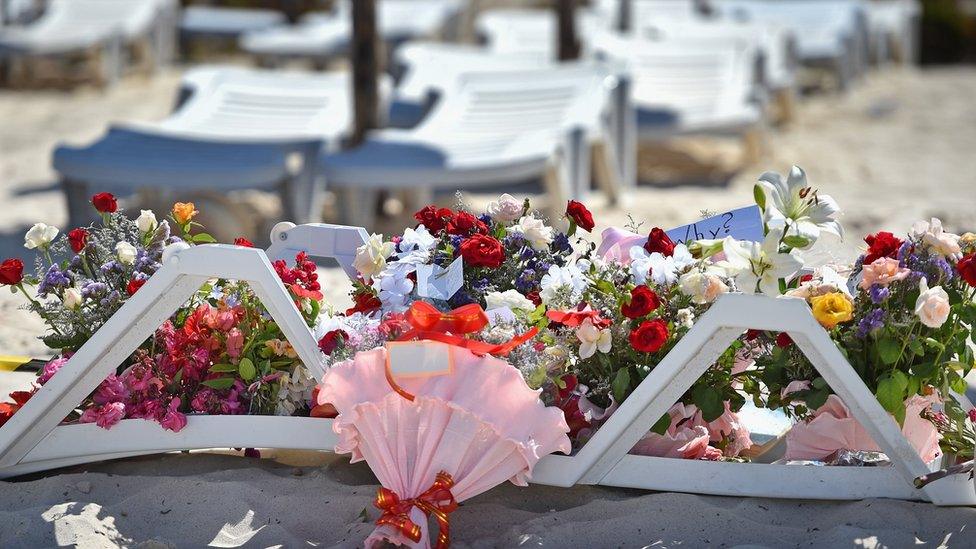
- Published25 January 2017
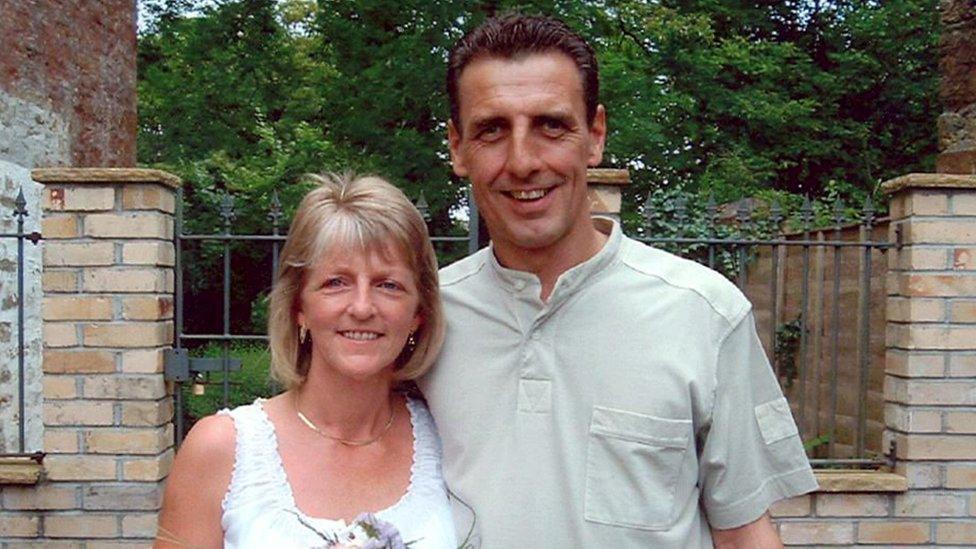
- Published28 July 2015
